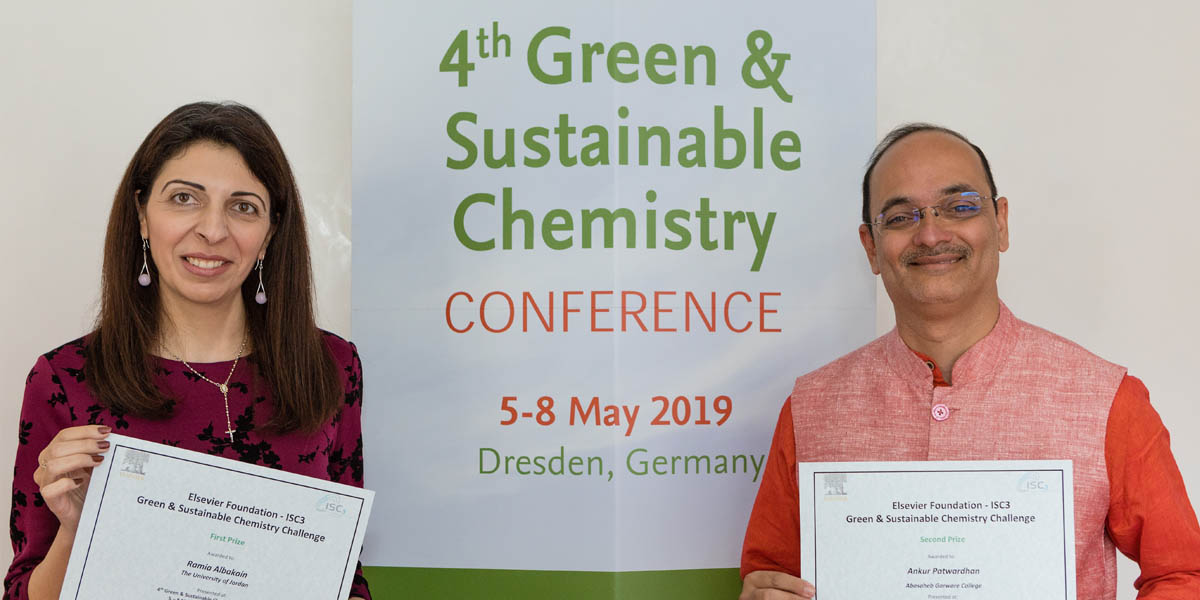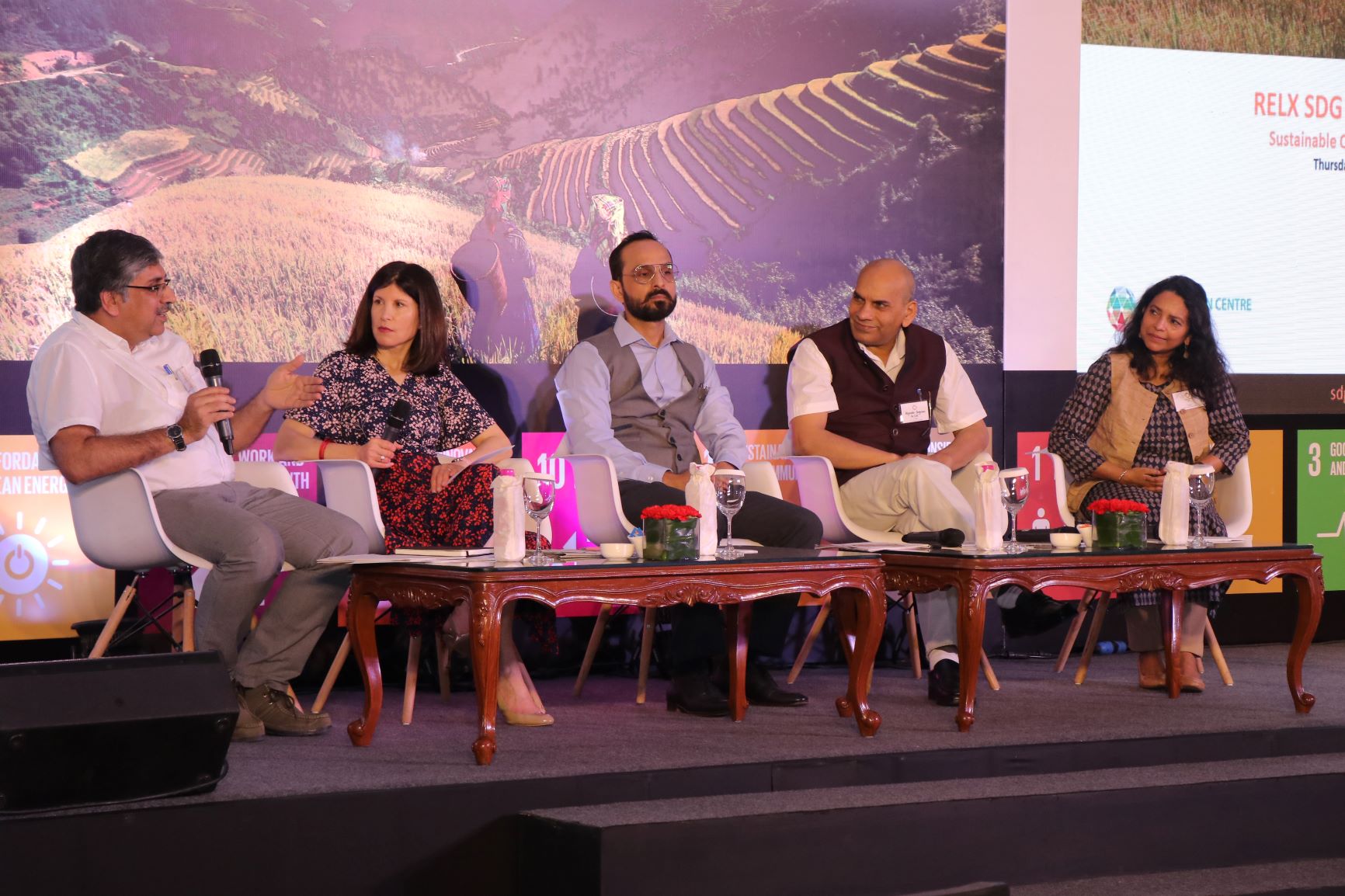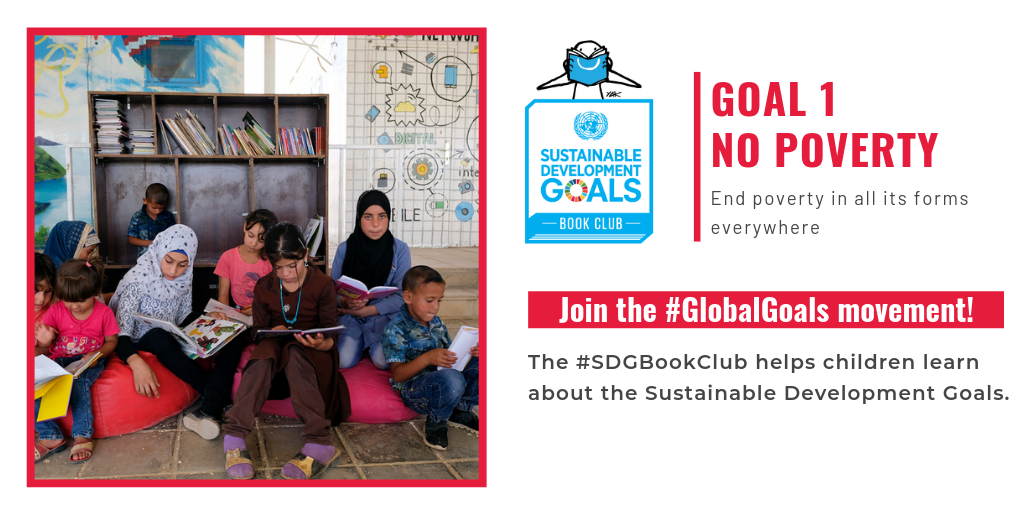Elsevier,
3rd June 2019
This article highlights the winning proposals of the fourth edition of the Elsevier Foundation Green & Sustainable Chemistry Challenge. The winning proposals were chosen for their innovative green chemistry aspects and their large positive impact on the environment, contributing to SDGs 6, 13 and 15.
Brightmine
This podcast dives into the steps companies can take to improve diversity and inclusion efforts. The topics covered help employers advance SDG 8 (decent work and economic growth) and SDG 10 (reduced inequalities).
Global Partnership for Sustainable Development Data, May 2019
In May 2019, GIZ partnered with the Global Partnership for Sustainable Development Data and the Governments of Kenya and Ghana to organize a joint peer learning workshop for partners engaged in SDG implementation and monitoring from both countries. The aim of the workshop was to share and learn from each others experiences in the area of SDG monitoring and engage in a technical cross-country exchange, furthering SDG 17.
RELX
Each year the RELX Environmental Challenge is awarded to projects that best demonstrate how they can provide sustainable access to safe water or sanitation. Projects must have clear practical applicability, address identified need and advance related issues such as health, education, or human rights. Applications close on 7 June 2019.
RELX,
2 May 2019
RELX held its fourth SDG Inspiration Day in Delhi to catalyse action on the UN Sustainable Development Goals. This event took place at the iconic Imperial Hotel in partnership with Global Compact India, Responsible Media Forum and the Ban Ki-Moon Centre for Global Citizens. The theme Sustainable Cities: SDG 11, critical to the rest inspired rich discussion among participants from business, government, civil society and academia who explored the interconnection of SDG 11 with cross-cutting themes, such as health and the rule of law.
Partner content
April 2nd, 2019
The #SDGBookClub helps children learn about the Sustainable Development Goals. The book club presents a selection of books for children aged 5-12 on each of the goals. Check out the books that have been selected in support of Goal 1 - No Poverty.
Partner content
United Nations University, New York, March 2019.
Focussing on SDGs 8 (Decent Work and Economic Growth), 16 (Peace, Justice and Strong Institutions) and 17 (Partnerships for the Goals), Dr Alison Gardner, head of the Rights Lab’s Governance Programme, discusses the Slavery-Free Communities Programme’s work, highlighting promising practices in the context of Nottingham and the UK.
Brightmine,
5 Mar 2019
Employers today must plan for an aging workforce and make a strong effort to attract and retain older workers. It is critical for employers to take note of the value older workers can bring to an organization and consider the following steps to address their needs within the context of workforce planning.
Despite the great potential of mobile data to support the delivery of the sustainable development agenda across sub-Saharan Africa, access to the data remains a great challenge due to real or perceived barriers. In order to address gaps in timely data that provide information on the SDGs, a multistakeholder workshop was held in Nairobi, Kenya, in February 2019, contributing to SDGs 9 and 17.



